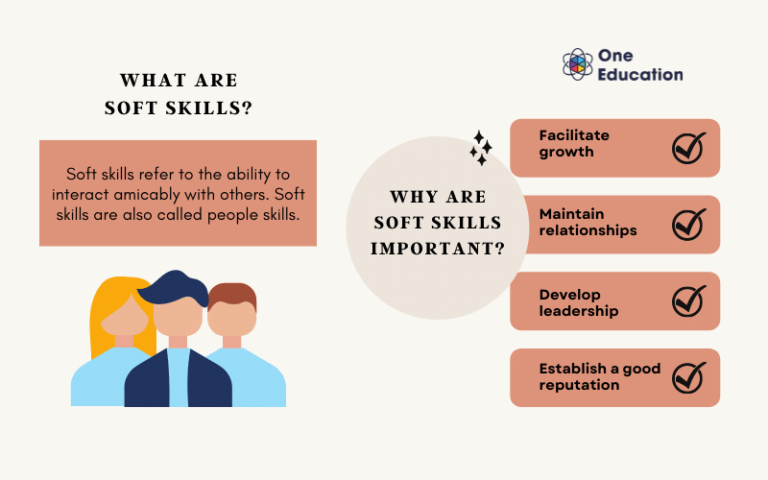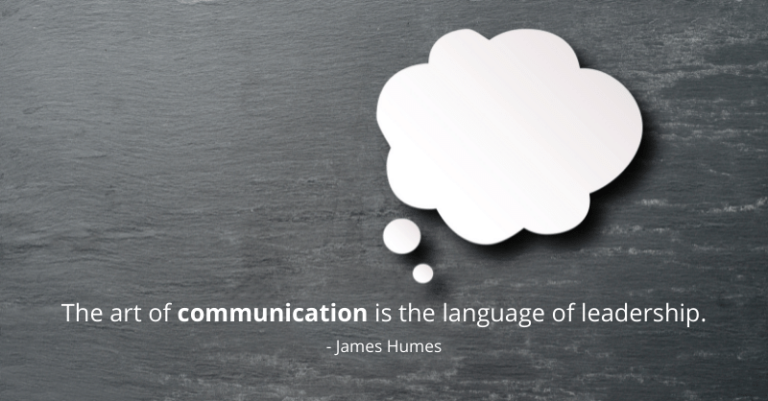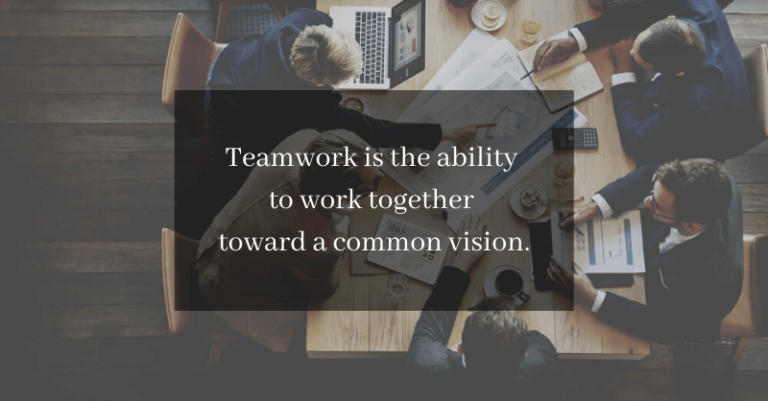Over the past couple of years, businesses, and employees have seen the importance of a supportive workplace. Being a manager nowadays is more than just having the necessary hard skills. To be proficient at your job and eventually become a great leader, you must possess some essential soft skills for managers. Soft skills are valuable as it is harder to learn. You can develop your soft skills over the period of your career.
Furthermore, soft skills are vital for effective leadership and performance management. Of all the skills a manager could possess, soft skills are the game-changer. This article will discuss the 10 essential soft skills for managers that will help you stand out. So, read on to find how to acquire these transferable skills and enhance your professional experience.
What are Soft Skills?
People skills or emotional intelligence are what we call soft skills. Before we lay out the 10 essential soft skills for managers, let’s discuss what are soft skills.
Soft skills can be defined as the ability to interact amicably with others. These personal attributes can affect relationships, interactions, and communications with others. And that is why soft skills are invaluable for business success. Especially soft skills for managers are more needed than ever. However, soft skills can be more difficult to develop than hard skills at times.
So, knowing what are soft skills is equally important as acquiring hard skills in running a successful business. Additionally, understanding the soft skills can help you identify the ones you possess. And you can also identify the skills that you need to acquire for future success in your life.
Why are Soft Skills Important for Managers?
While both hard and soft skills are critical, it is possible to claim that a manager’s actual worth is found in their soft abilities. According to 57 per cent of senior executives today, soft skills are more important than hard skills. Not to mention, entrepreneurs and business owners look for these intangible talents in their managers the most.

Employees’ soft skills are how well they communicate and connect with others around them. Business leaders may improve their customer service skills by being attentive to the experience they deliver. Additionally, people judge your leadership abilities based on how you treat prospects, future and existing customers, and your workers. For instance, Google’s employment process is based on what they call “Learning and Emergent Leadership” skills.
Google aims to learn how a person manages difficult situations, solves problems, and knows when to take the lead. Soft talents are another term for these abilities. However, Google isn’t the only corporation that uses this or a similar interview approach. Apple, IBM, Bank of America, and Google are among the companies that no longer require applicants to have a college diploma.
Additionally, when applying for jobs, most people put the two types of skills on their resumes and cover letters without even realising it. Unfortunately, we often place a greater emphasis on our hard skills when we should be emphasising our soft skills. Lastly, knowing which talents require the most attention and sharpening them is the most efficient method to improve as a leader.
For a more comprehensive understanding of why soft skills are important, enrol in our Soft Skills: The 11 Essential Career Soft Skills today. This CPD accredited course is designed to sustain your organisation and help you create a positive work environment.
You can also learn how to effectively list hard and soft skills on resume to stand out to potential employers. Get pro tips and examples in this comprehensive guide.
10 Essential Soft Skills for Managers
Being technically or knowledgeably adept at the workplace is not enough anymore. You have to acquire soft skills and excel at reflecting these skills in your daily events. Moreover, hard skills are sometimes useless if you don’t have the necessary soft skills to execute the task.
Furthermore, soft skills enable us to build relationships, relate to people and encourage others to succeed. Here are 10 essential soft skills for managers that will be an essential part of your armoury.
- 1. Communication
- 2. Team Work
- 3. Problem-Solving Skills
- 4. Decision-Making
- 5. Creativity
- 6. Delegation
- 7. Empathy
- 8. Trustworthiness
- 9. Time Management
- 10. Critical Thinking
1. Communication
Communication is the key to success at any workplace. And that is why it is number one on our list of soft skills for managers. Not to mention, communication is usually on top of any list of desirable soft skills. Managers need to be excellent communicators. Having communication skills doesn’t mean that you have to be an inspiring orator or a brilliant wordsmith. However, you need to be able to communicate professionally and clearly.
Being one of the essential examples of soft skills, communication plays a crucial role in professional development. When you know how to communicate effectively, you can seek more better opportunities which is important to your career growth. Along with confidence and emotional intelligence, communication can be considered fundamental components that help establish your interactions with other people. Without these anchors, other skills can be harder to learn and master.
That said, honing your communication skills is more important than ever. Thankfully, there are ways that can help improve them. For example, managers need to maintain regular contact with everyone on their team, provide frequent feedback. You also have to deliver rewards and recognition for excellent performance.

Managers need to maintain regular contact with everyone on their team, provide frequent feedback. You also have to deliver rewards and recognition for excellent performance. Communication happens in person, through email, chat applications, body language etc. So, managers need to communicate with their employees in ways that make them comfortable. Having good communication skills ensure that your ideas are understood and you can move forward with your work priorities.
A good manager let their employees know that they can discuss anything work-related on a regular cadence. Managers should implement an open-door policy and incorporate technology to offer real-time feedback. All in all, proficient communication is one of the essential soft skills for managers to build strong relationships with colleagues.
2. Team Work
Experts always talk about the need to demonstrate your ability to work well with the other members of your team. As the business world moves toward more cross-functional teams, Teamwork is becoming one of the most important soft skills for managers. But, just like leadership, good teamwork also involves a combination of other soft skills. For instance, you need interpersonal skills to work as a team towards a common goal.
Furthermore, you also need to be a good listener and know when to be a leader. You have to be perceptive as well as receptive to the needs of others as a team player. A good manager should know how to keep their team intact. Sometimes, healthy competition between team members can be very stimulating. Additionally, a successful and healthy team relies on the trust between members and the manager.

3. Problem-Solving Skills
Problem-solving is one of the most important soft skills for managers to develop. Any successful leader must be a problem solver. Everyone seeks a manager’s support when they can’t solve a business issue by themselves. Additionally, problem-solving skills help develop leadership ability.
Sometimes, newly encountered business problems might seem unique. The truth is that few things you come across in business might really be new under the sun. The higher up you go at your workplace, the harder the problems will be to solve. So, having good problem skills means being able to weigh all aspects of an issue with clarity and calmness. Sometimes, you have to make a sound decision within a split second with minimum information available.
4. Decision-Making
People can be really hasty and make wrong decisions all the time. The ability to make a quick and effective decision is one of the most critical soft skills for managers. Having decision-making skills lessen your recklessness and indecisiveness. Additionally, people in senior-level roles have to make decisions that will have a significant impact on the business.
For new managers, the decision-making process can be a bit overwhelming in the beginning. When you focus on insignificant details or obsess over unlikely outcomes, your decision-making process will be faulty. However, when managers receive leadership training, it instils a structured approach to decision-making. It means the decision-making process will be an organised endeavour. You learn to ask the right questions and answer them with appropriate data.
5. Creativity
Every corporation values managers who can approach problems in fresh innovative ways. Businesses want managers who can use creative tools like design thinking, improvisation and ideation. You need to be willing to experiment to develop new processes or approaches.

6. Delegation
Managers have to effectively delegate tasks as a part of their employee support responsibility. Managers need to delegate tasks based on team members’ strengths and weaknesses. A good manager should have the skills of delegation. It helps you know when certain people are best equipped to perform specific tasks.
Additionally, managers must be aware of any training, resources or support that an employee might be in need of. And then you have to make sure the employees get their necessary support. You need to trust employees and enable them to learn and grow. It will truly set the employees up for success. Instead of micromanaging, a manager needs to guide employees through delegated tasks. You should offer helpful feedback and criticism along the way.
Lastly, create a two-way, transparent channel where employees feel comfortable to ask for clarification when a concept is new for them. It will foster healthy communication, and as a manager, you will know what works for the organisation.
7. Empathy
Empathy is one of the most important soft skills for managers to have. Showing compassion and empathy at the workplace is necessary considering the hardship we’ve faced for the past few years. You can make all the difference in the life of an employee using your emotional intelligence.
Empathy as one of the soft skills will let you pick up on signs such as when an employee is pushing themselves too far. Sometimes, employees may suffer from depression, anxiety, or burnout. A good manager in such cases will pick up on signs of these conditions in advance. Furthermore, a good manager needs to be sensitive when it comes to issues like mental health.
You need to put flexible work measures in place. And introduce policies that show the company cares about the employees.

8. Trustworthiness
Trustworthiness is one of the crucial skills that makes a good manager. Good managers are dependable and respectful of their employees’ privacy. Moreover, employees must have faith in their leaders and trust that their bosses are looking out for their best interests.
If your employees believe you don’t care about them, your workplace will become ineffective, with less collaboration and unpleasant competitiveness.
Furthermore, employees must also have confidence that management is telling the truth. Your credibility is built on respecting your employees’ privacy. And you have to provide candid advice that is in line with your company’s objectives.
If you are not trustworthy, you will never be able to effectively lead and push others to perform. The managers must keep their word, be open, and be willing to accept mistakes. That way, others will follow suit as well.
9. Time Management
Managers must deal not only with project deadlines but also with stakeholder concerns, budgetary constraints, and senior leadership pressure. Hence, time management is another important soft skill for managers. It will help teams stay on schedule and be more efficient.
Time is the one resource that a manager will never have enough of. Think about using methods like the Pomodoro Technique for focused work intervals and time tracking software to keep an eye on your work hours, breaks, and idle time. Therefore, it is critical to build and consistently improve your time management skills in order to succeed as a manager. Also, you must be able to prioritise and delegate to limit the number of tasks you must do. You must also be able to maximise what you do get done in the time you have.

10. Critical Thinking
As an effective manager, you have to evaluate situations and recognise potential issues. Also, you have to make decisions based on the consideration of multiple variables and points of view. So, being able to think critically has become increasingly important.
Additionally, as the pace of business has increased, managers are faced with more complex decisions every day. So, critical thinking is one of the must-have soft skills for managers. You have to be willing to question assumptions and be willing to look deeper than the surface. Critical thinking lets you find potential in every situation. No matter how complicated it is to execute, you can always find a shortcut using your critical thinking skills.
The 11 Essential Career Soft Skills
Soft Skills Vs Hard Skills
Soft skills and hard skills are the two sorts of skill sets that every employee must possess in order to be genuinely effective. Technical knowledge, or knowing a program, language, or technique, are examples of hard skills. Hard skills are simple to teach and measure. Examples of hard skills include knowing how to code in Python, Excel, or Photoshop, understanding how to apply SEO or UI concepts, and other abilities. Hard skills are often acquired through formal or informal schooling.

Soft skills, in contrast, are more difficult to quantify and include personality qualities. It includes interpersonal skills and leadership abilities, problem-solving skills, as well as other less quantitative yet very valued skills.
Soft skills can be taught and learnt, but how well they stick depends on a person’s values and management style. Both soft vs hard skills have their place in an employee’s toolbox. Regardless, a manager or someone who aspires to be a leader should concentrate on honing their soft skills.
According to a study of Fortune 500 CEOs, soft skills and people skills account for up to 75 per cent of job success. According to Harvard University research, soft skills account for 80% of employment success. And this isn’t only excellent news for employees; it’s also fantastic news for businesses. Furthermore, another study revealed that educating workers in soft skills enhanced productivity by 12%. Hence, it resulted in a higher return on investment.
Related:
1. 5 Interpersonal Skills That Every Manager Needs
2. How to Become a Tour Manager: Explore Jobs and Career Paths
3. How to Become a Project Manager? A Complete Career Guide
Conclusion
Soft skills aren’t as straightforward as it might be to learn technical skills, like learning software programming. But the importance of soft skills for managers or any other position is undeniable.
Businesses are now reassessing the economic changes to get through this pandemic. In the coming future, businesses will give more focus on soft skills in order to stay competitive. These 11 Essential Career Soft Skills for managers will further ensure the long term growth of their career.
FAQs
1. What Skills Do You Need To Be A Manager?
To be a manager, you need skills in leadership, communication, decision-making, problem-solving, and team management. These skills help you effectively lead and support your team to achieve organizational goals.
2. Is Leadership A Soft Skill?
Yes, leadership is considered a soft skill. It involves qualities like communication, decision-making, and team management, which are crucial for success in various roles and industries.
3. Is Team Management A Soft Skill?
Yes, team management is considered a soft skill. It involves the ability to effectively lead, communicate, and collaborate with others to achieve common goals.
4. What Is A Soft Skill Simple Definition?
A soft skill is a personal attribute or quality that enhances how you interact with others, communicate, and work effectively in various situations. It includes traits like communication, teamwork, adaptability, and problem-solving.
5. Which Skills Are Essential For Higher Level Manager?
For higher-level managers, essential skills include leadership, strategic thinking, communication, decision-making, and adaptability. These skills help them effectively lead teams, navigate challenges, and drive success in their organization.


 May 19, 2024
May 19, 2024
















